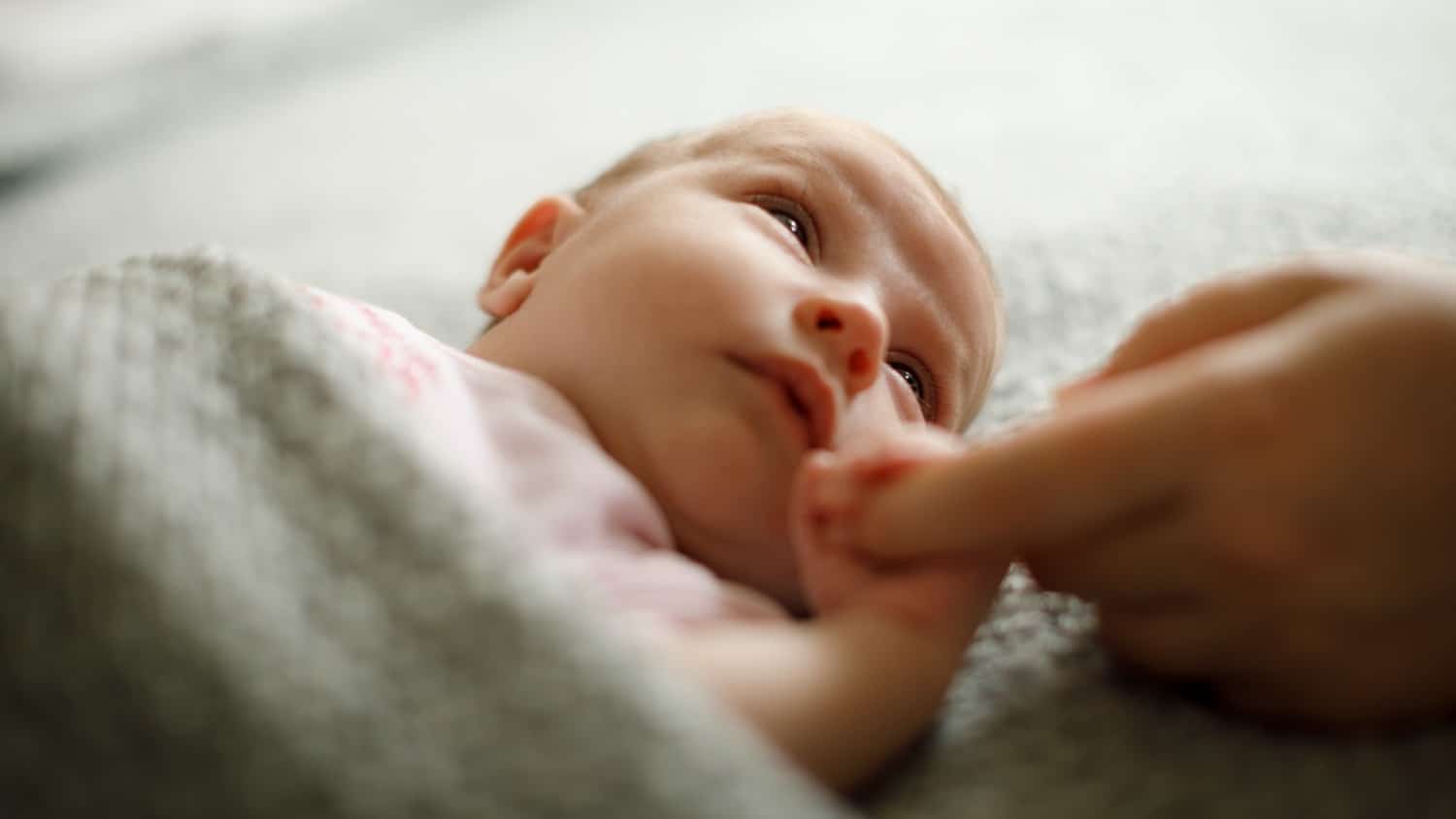
Solace for “Never to Be” Grannies
Grandparents have had an outsized role in my life. No, I was not blessed with four doting “Grans.” I only had three: one disinterested grandparent who lived at the shore, and two who primarily spoke Yiddish and whose hearts were scarred by the Holocaust.
The grandparents I valued most were the four who stepped in to help raise and love my daughter, and later their non-biological grandson, after my first husband’s tragic death at the age of 30. I never imagined that I would not be a grandmother, because those people were so vital in my life.
A Group I Didn’t Want to Join
It now appears that such a foregone conclusion will probably not come to pass. Because US Census data finds 86% of women in their childbearing years eventually have children, I find myself in a small, non-elite group of what a relative has termed, “infertile grandmothers.”
It is easy to feel the remorse of not having a new baby to hold or witness one’s family expand. There is not a natural outlet for sharing family stories, providing a legacy, or having a reference point as life marches forward.
There is a palpable sadness about loss of the opportunity to forge deep, emotional bonds with members of one’s own tribe. And it is in the word “tribe” that a wider understanding of grandparenthood emerges.
Are Humans Wired Up to Want Grandchildren?
Grandparenthood and the act of procreation are very closely aligned. Evolutionary biology finds that the interest in procreation is rooted in the human psyche. As the pandemic has vividly revealed, we are a social species. We like to gather and commune in familiar groups.
We value “belonging” in a huge way. However, there are differing opinions, both scientific and those based on social science about an innate need to procreate as parents, and later as grandparents.
What Are the Contrasting Theories?
The theory of pronatalism, which is a political idea dating back to the time of Louis XIV, promotes the value of human reproduction as an anchor to society. Religious groups such as Catholics, Haredi Jews, Mormons, the Amish, and Salafi Muslims are relevant examples. The main responsibility of their women is to procreate.
By contrast, scientific theories refute this idea, and claim that the sex drive in humans is more of a “pairing” ritual, because human infants benefit from more than one caretaker. Laura Carroll in her post on Invivomagazine.com refutes pronatalism. She describes three faulty assumptions: that it is “normal” to want to have kids, it is our “destiny,” and that having offspring is a key method for “fulfillment” in life.
After examining the literature, I feel somewhat like a victim of society’s powerful messaging, not to mention a personal, embarrassing wish: to have a grandchild with curly blond hair and blue eyes just like my children and me.
I Did Not Create the World’s Problems
Ultimately, the decision about whether I will become a grandmother is 100% out of my control. It is up to my children. Of course, romance and financial circumstances play a role, but in the modern world, there is a multitude of compelling factors that enter into the decision to have or not have a child. Psychologists advise wannabe grandparents to avoid the subject altogether to prevent estrangement from adult children.
The Brookings Institution expects 300,000-500,000 fewer births as a result of the pandemic. Effects of the Great Recession on our economy, the high cost of having a child, and exorbitant daycare costs buffered by stagnant wages are well publicized reasons for this trend.
Climate change, the wars in Ukraine and the Middle East, and the previously unimaginable closure of schools for extended periods of time are other strong reasons for the personal choice of going childfree.
Statista reports that in the US, 60.4% of women ages 25-29 and 38.5% of women ages 30-34 are childless. Those numbers are staggering to a woman who had her first child at age 27, like so many of her peers! Medical experts suggest the prime ages for childbearing are the late 20s to early 30s. Obviously, our society is not attuned to that important biological fact.
These arguments are not offered as “sour grapes.” These are the real reasons many couples choose not to have children. There is also the issue of fertility as couples need to build significant resources before establishing a family, delaying attempts to become pregnant.
Creating a Life of Meaning
With the evidence that bringing a child into the world at this time can be a burden and a great risk, the more self-centered reasons of romanticizing babies, and seeing grandchildren as an extension of oneself seem quite trivial. The question of how a fertile or infertile grandma can find meaning in her own life will always be a key dimension of retirement in all circumstances.
The Voluntary Human Extinction Movement has many suggestions which it offers to young adults to encourage a childfree life. This organization aims to enlist followers to remain childfree to “return the earth’s biosphere to its former glory.” Their list of suggestions very closely parallels substitute activities for grandparent wish fulfillment.
If you want to make a lasting contribution to society, think of a good way to give back to the world. If you want to carry on your family name, make a donation to a charity in your own name. If you love babies, volunteer in an NIC unit or become a foster grandparent. If you have the need to nurture, use your skills with the elderly, the ill, the handicapped, plants or animals.
All philosophical discussions circle around the main objective of the later stages of life: finding meaning. Those who are bona fide grandparents cannot be seduced by an easy slide into this role, as the role of a grandparent is anything but “easy.”
While there are many advantages for three generations, there are limitations. Wishes of parents must be honored, unlimited freedom and control of the kids do not exist, and grandchildren can become an unhealthy obsession, becoming a placeholder for more individual pursuits.
Personally, my new-found acceptance of being grandchild-less fits more into my universal way of looking at the world. I accept that I am a very, very small part of the cosmos. I am but one of billions of organisms on this earth, each of which has a particular lifespan and connection to others.
I look at this stage of life as having the time and wisdom to begin seeing myself as a new individual, no longer bound by former roles and responsibilities. There is so much work which needs to be done in this world. I relish finding those situations which suit my values and physical capabilities. Most importantly, I truly accept that my two children are the sole deciders if there will be new branches on the family tree, a harmonious way of being.
Let’s Have a Conversation:
If you are a “never to be” grandma, have you learned to accept this situation? What life experiences have contributed to where you stand in this matter? If you are a grandma, is the reality as rosy as it appears to those of us without grandchildren? Are we truly missing out on a key life experience?
Tags Grandchildren







I have one son who decided not to have children and another son with children from whom I am estranged. The estrangement began about three years ago, so I did have a brief time with my granddaughters. What I learned is my suffering from the estrangement is that it is my expectations of a relationship with my granddaughters that was causing my deepest pain. Once I began to let go of my expectations for this relationship, I began to heal. I completely support my other son’s decision not to parent as it is the right thing for him and his wife. Never imagined these factors in my life, but it is what it is.
I respect the fact that several commenters felt my post was very pessimistic. That was not my intent. I just wanted to share the very real reasons many young people are not having children, so their parents understand. There was an excellent post on CNN by a member of Gen Z validating these well documented reasons.
https://www.cnn.com/2023/11/11/opinions/not-having-children-lee/index.html
My children are 27 and 30, and unmarried. I know both would like to have children at some point, but they haven’t found the right person. I do look forward to being a grandparent, but I just want them to be happy and will support what life brings. While there are some helpful suggestions in this article, I find the “horrible world” section and commentary quite negative. Throughout mankind, there have been wars and, in fact, greater suffering. I think the access to information that we now have may cause us to lose perspective and miss the abundance of joy that doesn’t make headlines or social media posts.
Great topic as we were never able to have children and therefore will not have grandchildren. Can be hard to see friends my age now having that joy.